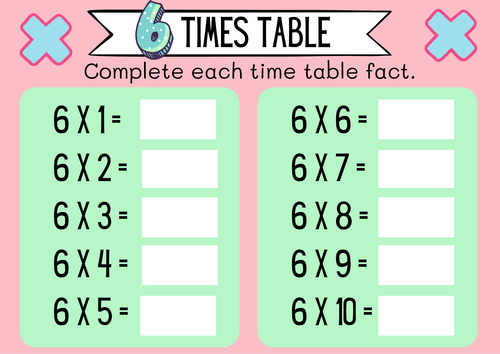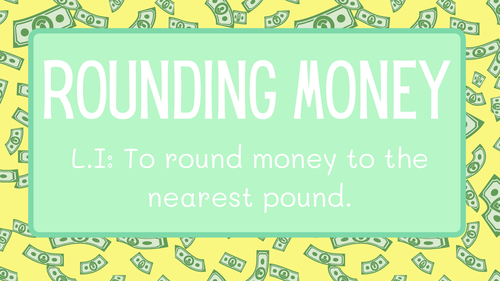127Uploads
18k+Views
2k+Downloads
Mathematics

Algebra - Solving one and two step equations
This resource covers one step and two step equations (with balancing). It includes lots of examples for learners to try before progressing on.
It also has 3 differentiated worksheets which provide consolidation and challenge for all learners.

Simplifying Fractions
This resource breaks down simplifying fractions by firstly revising a key concept for learners which is factors and identifying the GCF. This skill is essential for them to understand how to simplify.
It then progresses to showing learners how to simplify by listing factors and identifying GCF. Finally it condenses it into just simpliying.
There is a short formative assessment activity differentiated across three levels. These have 8 questions each and learners can choose the level they wish to attempt.
This lesson can be broken down into multiple lessons.

Converting 12 and 24 hour time
This resource works best with an interactive whiteboard that learners can write on. It can also be adapted for use on Seesaw or other online platforms.
This resource begins with a time conversions starter quiz on units of time.
It then begins by explaining the key differences between 12 and 24 hour time.
It then provides digital clocks for learners to practise converting between the two different formats.
It has ten practice questions for learners to try independently.
Finally, it progress to using analogue and digital clocks and writing times in both 12 and 24 hour format. This challenges learners and provides good assessment of which areas of time learners find challenging.
A template for these slides is available which can be printed for learners to write on directly either with pencil or work well with smart pals or wallets.

Decimal Thousandths Powerpoint
This resource revises the place value of a number up to decimal thousandths.
It then briefly covers partitioning/expanding of decimal numbers and ordering decimal numbers. It contains links to two games that can be played on an interactive whiteboard with learners.

Fraction, Decimal & Percentage Display
This fraction, decimal and percentage display is a great visual for learners when making connections between them as this is a challenging concept.
Alternatively these could be cut up and used as a matching game.

Prisms & Pyramids
This lesson explains the properties of prisms and pyramids and explains what is meant by a cross section.

Maths Revision Code Breaker
This resource contains two code breaker to revise key numeracy and maths topics across upper primary/KS2.
Answers are included

Six times table Whiteboard Resource
Six times table White board Resource or can be used independently by learners on a tablet.

Angles IWB Resource
This is a great resource to teach angles and get learners involved. This can be edited by learners or teacher on an interactive whiteboard or it can be completed independently by learners on a tablet or other device.

Decimal Thousandths
This lesson teaches and visually demonstrates different ways of modelling decimal thousandths.
It also shows how to expand decimals in a written form.
This resource works well with an interactive whiteboard as there are lots of opportunities for learners to write on the resource.
There is also a Guessimal game which learners love. A learner must choose one of the decimal numbers and the other learners have 7 chances to try guess the chosen decimal. They must ask questions like:
Is there a 5 in the tenths column?
Is there an even number in the units?
Does your decimal have any hundredths?

Maths Revision Daily Starters
This starter contains 12 questions which revises key concepts and skills covered in upper primary KS2 or Primary 6 / 7.
It contains 15 different question sets.

Maths: Probability
This resource explains what probability is then explains the language used for probability e.g. Certain, likely, impossible etc.
It gives a few examples which encourage the children to use this language. It then goes on to show how we can use fractions, decimals and percentages to show probability and it provides a few examples of this.

Five Digit Numbers Place Value & Ordering
This resource revises the place value of five digit whole numbers. It also covers writing five digit numbers in words and ordering five digit numbers.




















